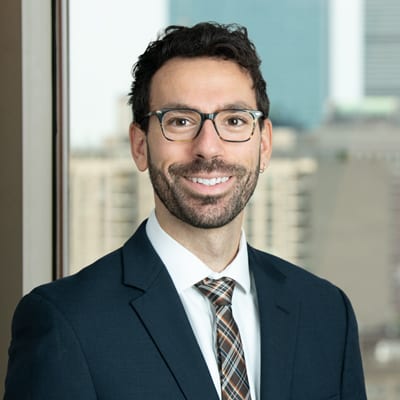Public Law
Police Officer Suspended for Facebook Post Allowed to Sue City
At a time when Towns are increasingly wary of potentially inflammatory political statements by their employees, a Massachusetts court has raised a warning flag for Towns considering discipline as a result of those statements. A Cambridge police officer filed suit against the City, alleging it had violated his constitutional free speech rights by disciplining him for a private Facebook post. The City tried to dismiss the lawsuit, but the federal district court on October 11 allowed it to go forward, deciding that more facts were needed to determine whether the City violated the constitution.
Officer Brian Hussey has a private Facebook page that is not affiliated with Cambridge and does not identify him as a police officer. While off duty, he posted a news article about the decision by Democrats in the House of Representatives to name a police reform bill in honor of George Floyd, adding a comment saying “This is what its [sic] come to ‘honoring’ a career criminal, a thief and druggie . . . the future of this country is bleak at best.” The Cambridge Police Department (CPD) was notified of the post, and ultimately suspended Hussey for four days. Hussey sued, claiming that the suspension violated his free speech rights.
Public employees have more limited free speech rights than other citizens. The Supreme Court has recognized that their speech has the potential to undermine government policies or interfere with the government’s proper functioning, and therefore that their free speech rights need to be balanced against their government employers’ interest in functioning efficiently. This applies with particular force to the speech of police officers, due to the special degree of public trust placed in police officers and the need for discipline in a police force.
To balance Hussey’s interest against the CPD’s, the court looked at the context and content of Hussey’s Facebook post, and the interests that the CPD sought to protect by suspending Hussey. The court discussed the history of George Floyd’s murder and the related reform movement, and determined that the topics that Hussey’s post spoke to (including police reform, racial justice, and the use of force by law enforcement) were of significant public concern and required “free and open debate.” On the whole, the court found that the speech had some value because it addressed important topics of public concern, but that that value was “not particularly high” because the post used pejorative language, and insulting speech is entitled to less weight in the court’s analysis.
In assessing the CPD’s interest, the court noted that Hussey’s post was potentially inflammatory: the post was likely to be offensive to members of the public and other CPD officers because George Floyd’s murder “is inextricably tied” to issues of police brutality and racial injustice. The court recognized that the post could undermine the CPD’s strong interests in promoting public trust in unbiased policing, and in preventing discord among its officers. But the court determined that at this early stage in the case, there was no evidence that those interests had actually been harmed by Hussey’s post. Without evidence, the court was unable to say that the CPD’s interests outweighed Hussey’s and the public’s interest in allowing the speech.
Although the court appeared skeptical of Hussey’s claim, and suggested that the CPD’s interests will likely outweigh Hussey’s interests if backed up by the evidence, the fact that the City now has to deal with expensive litigation may make public employers think twice before punishing employee speech, even if that speech realistically threatens to undermine legitimate interests. The court did suggest, however, that certain circumstances could strengthen a public employer’s case, including evidence that the speech had received attention from the media or the public, had interfered with outreach efforts, had violated written policies or directives, or had been discussed by the employee’s coworkers. Towns trying to limit their exposure should clearly document the reasons for any speech-related discipline, including any evidence of adverse effects the speech has had on the Town’s interests, in the notice of discipline itself. It is also helpful to have clear written policies stating what kind of language will not be tolerated, and why. While these measures may not guarantee a Town will avoid a lawsuit altogether, they should provide some protection against an ultimate finding of a constitutional violation.
